Gordonstoun Chaplain Christian Collett discusses how to deal with conflict, particularly in the difficult times we face today.
What do we do in the face of conflict? This is the topic, given recent events, I feel impelled to consider today.
When I was young my favourite film genre was the Western. The Lone Ranger and Clint Eastwood were my heroes. What was it about those Westerns and these characters that appealed? At the time I would have said the magnificent settings, the gun fights, the toughness and worldliness of the characters and the eventual triumph of good over evil.
If we examine the Western film genre more closely we see that it features a lawless Wild West, a literal and metaphorical “frontier.” An environment in which the usual social and legal norms cannot be taken for granted. There are also clear villains: rapacious ranchers, barbaric native Americans and corrupt officials. The environment and the villains provide a proving ground for our cowboy heroes in which they show us, the audience, what it takes to be victorious. It requires a tough and seasoned male, who can withstand set-back and pain and who is willing to face violence with violence and kill until he prevails.
Parallels have been drawn, by academics, between Cold War Foreign Policy, during the second half of the last century, and the Western. Indeed Ronald Reagan, the US president during much of the 1980s, was an actor in Westerns before becoming a politician. He certainly painted the communists and the USSR with whom the West were in conflict as the bad guys against whom the US was honour bound to stand up against and fight.
|
One could even say that US Foreign Policy was the Western writ large. With the ending of the Cold War in 1991, the situation did not change much with the US, often with Britain in support, seeking to impose its will on the global “frontier.” The problem is: having left school here 30 years ago or so, this Western movie inspired recipe for Foreign Policy does not seem to be working. With some ingenuity world powers have created: elite special forces, proxy forces, enlarged Intelligence agencies, attack helicopters, laser guided bombs, drones with hellfire missiles and yet these have not solved conflict. |
|
Violence has not succeeded in Northern Ireland, Bosnia, Somalia, Iraq, Afghanistan, Syria, Libya and the Middle East. In the Ukraine the outcome is, at present, uncertain. If one looks at the casualties and in particular the death toll, the statistics are shocking:
- Northern Ireland: 4,000
- Bosnia: 100,000
- Somalia: 400,000
- Iraq: 600, 000
- Afghanistan: 200,000 in the recent conflict and over 2 million if one goes back to 1979 and their war with Soviets
- Libya: 30,000
- Middle Eastern conflict centred around Jerusalem since the 1920s has seen the death of 60,000 people and counting
- Ukraine: 15,000
The majority of these states are still in turmoil and continue to be wracked by violence carried out by multiple parties.
Given the influence of the media on each generation, how is violence presented to us today? Well, hands up if you have ever played Fortnite or Call of Duty (COD)? If you raised your hand, you are not alone. I gather 400 million people play Fortnite and 250 million people play COD, a game whose title suggests that we are honour bound to fight. It seems Samuel Johnson’s 18th Century observation that “Every man thinks meanly of himself for not having been a soldier” still holds true.
What about the cinema? Who are your role models and do they provide different or better guidance as to the way forward when faced with conflict? For example, what approach would Spiderman, Batman and Wonder Woman take to a problem?
On initial examination, we still have the problem that most superheroes rely on force if not outright violence to solve threats and problems. Churchill, the famous wartime statesman, actually advised that it was better to jaw jaw (ie talk and try and find diplomatic solutions) rather than to war war - fight but superheroes don't appear to have read their history.
Current media, it would appear, continues to glamorise and promote violence as the solution to conflict and… providing you have your favourite weapon, you are confident of victory in Fortnite.

But back in the real world: what should we do in the face of conflict? Part of the answer does ironically come from your Superheroes who do possess certain virtues.
Superheroes typically summon the courage to do what is right and will carry on even when this comes at personal cost; leading ultimately to self-sacrifice. Superheroes often have humility, despite possessing great power and they tend to use it morally. They will also persevere, in the face of difficulties and they take responsibility for the outcome.
But we STILL need something else to replace the violence, the “descending spiral” that our reading from Martin Luther King identified. Happily his analysis and example does provide an answer:
“Returning violence for violence multiplies violence… Hate cannot drive out hate, only love can do that.”
So Martin Luther King’s answer is Love?
Thinking back over that list of conflicts, witnessed over the last 30 years, one that has moved away from violence is Northern Ireland.
The conflict in Northern Ireland, one that involved bombings, shootings and other atrocities, was not solved by overwhelming force or precision violence. It was in fact solved by a handful of individuals, acting, not as their political parties would have wished, but on their own consciences and making concessions to an “other” that they recognised as human. This is the beginning of love.
One of those participants, a man by the name of David Trimble likened the state of Northern Ireland to a “solid house” and yet a house that was a “cold one” for those of its Catholic occupants. Being cold, as you may be discovering, is no fun.
David Trimble recognised the injustice of the situation in Northern Ireland and sought to change it. This required perseverance on his part, there were obstacles to be overcome and, as mentioned earlier, he had to make sacrifices both personal and political to see the situation resolved. Ultimately though this led to the Good Friday Agreement when power sharing, amongst former political enemies, was agreed.
Whilst on a smaller scale than many of the conflicts mentioned, I believe it may provide us with a model as to how to resolve conflict.
If this is the case, where do we all come into this? What roles are we to play in resolving conflict? I would suggest we don't leave conflict to superheroes. Looking for heroes disempowers us as citizens. It will likely make us apathetic and remove our agency when we have important roles to play.
|
Instead, let us focus on us, as we are and the world, as it is. Let’s not look for superheroes but rather emulate their best virtues of courage, humility, perseverance, responsibility and self-sacrifice. Let us, as ordinary people, act and give voice to our feelings and analysis. Whilst leaders, such as Martin Luther King, can inspire and show the way, grass roots support by citizens is needed for conflict resolution. Whilst Gordonstoun makes leaders it also makes international citizens. |
|
Indeed the stand we take as a citizen can be the inspiration to both those around us and to leaders as well. Take the example of US citizen Rosa Parks who refused to give up her seat on a segregated bus in 1955.
How and why did she act? She felt righteous indignation and passively resisted. She did not resort to violence. As a result people were inspired to boycott the bus services, a legal challenge was raised in the courts which was successful and she collaborated successfully with Civil rights Leaders such as Martin Luther King and shifted public opinion. In the end she had, and continues to, inspire millions.
We exist in a world of power imbalances, whether they be political, economic, military, religious or social. Groups that impose themselves on the weaker merely breed hatred.
We must recognise “the other” as fellow human beings, and learn to love. Love your neighbour, even when they are your enemy as the parable of the Good Samaritan suggests. Learning to love will however require us to live out those superhero attributes we admire. When you love someone you will persevere. You will feel humility, when you recognise them for what they are. You will make sacrifices. This is surely a better way forward?
This poses a final question: How can we persevere in the face of seemingly insurmountable evidence that conflict and violence are unavoidable and are an inevitable part of the human condition?
The answer perhaps is faith, which may be why the command Jesus gives us before enjoining us to love our neighbour is: “love your god with all your heart and soul.”
Loving God is a day-to-day learning process. We learn more and more about how to do it, a little each day. I am still working at this, aged 50 odd, but you may be faster than I?
I do hope though, that we may all be able to reach a point when we can say with the Apostle Paul: I am content no matter what. I can live on almost nothing and I can live with everything.
With Faith, we can perhaps overcome, as it gives us the necessary strength, sustenance, and courage to go on seeking and recognising the humanity of the “other” whomever that may be.
We thank Christopher for sharing this important message. To explore how Gordonstoun fosters compassion and courage in every child, enquire here:
Curious about Gordonstoun? To find out more about our sporting community and the uniquely broad range of opportunities available to our students, join us on our next Virtual Taste of Gordonstoun Webinar.















































































































